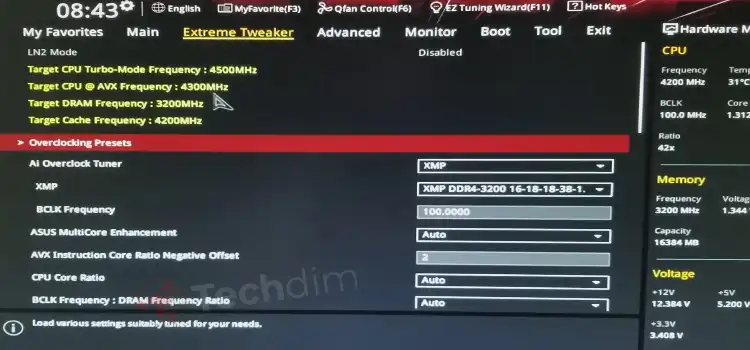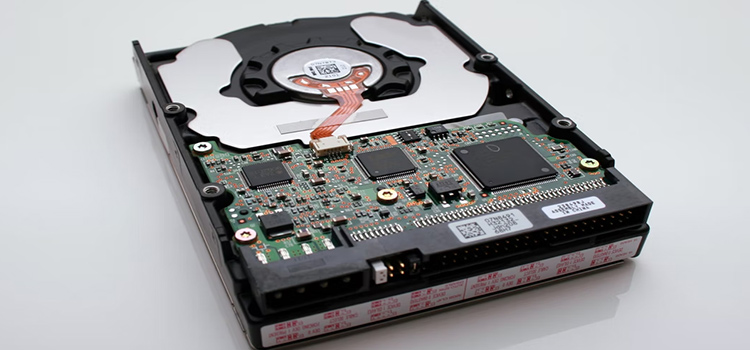How Long Do Gaming PC Last? | Ultimate Explanation
Gaming PCs are one of the best things that happened in the world of gaming. And if you are a gamer, the possible investment you can make is to invest in a shiny new gaming computer. However, PC components getting ever so expensive as days go by, it’s only fair to ask how long do gaming PC last.
Well, there’s no hard and fast answer to that. Because the average lifespan of a computer is dependent on a lot of things like how much maintenance and money you are going to put into it. That goes for both prebuilt gaming PCs and PCs built from scratch.
Generally speaking, if you maintain your rig well enough and have used good quality parts, a gaming PC should last you anywhere from 10 years to a lifetime. However, if you want to run the latest games at max settings and the highest frames, and want to keep on doing so, we’d give you a lifespan of at least 5 years before you need to upgrade some components.

Average Lifespan of a Gaming PC
If you are willing to put some extra cash into your gaming PC over the years, your gaming PC can last up to 10 years before you will see performance starting to degrade. Keep in mind though, when we say 10 years, we assume that you are going to upgrade the GPU after 5 or 6 years. Anything beyond that, you will see serious degradation in graphics performance.
So why we said 10 years or potentially forever earlier? It’s because the great thing about computer games is that they are adaptable. PC games, from their early stages to this day, offer a variety of graphics settings to tweak your visuals according to your hardware capabilities. So if you manage your expectations, you can potentially game for up to a decade on the same gaming PC. And for basic tasks and simple to low-end gaming, it’ll last you forever.

Keep in mind though, you have to ensure regular and proper maintenance for your gaming rig. Because computers are more prone to dust and moisture than any other electronic component. We recommend investing in a good quality vacuum cleaner or a dust blower. Compress air too is a great wallet-friendly alternative for your monthly cleaning.
For a better understanding of how long do prebuilt PCs last, especially gaming PCs, we’ve divided it into three sections. Let’s dive in.
1. Low-end or Budget Gaming PCs
Anything south of 700 $ for a gaming PC should be considered as a low-end budget gaming PC. They last slightly lower than a mid-range gaming PC.
Because they use parts that are about to drop off from the market but still are good for what they offer. So, it’s no wonder, budget gaming PCs use processors and graphics cards that are two or three generations older, at least.
However, they are still a great option for games who love those old-school games. Popular FPS (First Person Shooter) and MOBA (Multiplayer Online Battle Arena) games are good examples of these kinds of games. Because these games usually offer updates that are more focused on gameplay rather than performance, they often run great on older hardware.
You can expect great old-school gaming for up to 3-4 years on these gaming PCs.
2. Mid-tier Gaming PCs
If you are looking to get the most bang for your buck, mid-tier gaming PCs are a viable option for you. Because newer generation GPUs offer most of the features from the older generation high-end graphics cards, they are a great always in the most demand, thus game developers don’t want to miss out on this. So, games released up to 4 or 5 years from your purchase will work with ease on your gaming PC.
As long as you keep upgrading parts like the CPU and the graphics adapter, after a few years, you should expect it to last around 4-7 years. For a more wallet-friendly option, you can always pick parts that are one generation behind but still an upgrade for your existing PC.
3. Flagship Top-end Gaming PCs
For the ultimate gaming experience, you have to pick the best of the bests. So, it’s no wonder that top-tier gaming PCs can last you around a decade. And you can expect full-notch high-resolution gaming for at least 7-8 years, after that you might need some major upgrades.
However, it all depends on how fast and in what direction gaming technology develops. All the top-tier AMD and Intel CPUs and GPUs are VR-ready and capable of bleeding-edge technologies like ray tracing and should last for years to come.
Judging by the market pace and game developer’s strategy, buying a top-tier gaming PC will keep you relevant for long enough to get your money’s worth.
How Long Does Each Part Last in a Gaming PC?
So, we’ve established how long should a gaming PC last, depending on its price. But how long does each part last, or when you should consider upgrading them? Don’t worry, we’ve got you covered.
1. Graphics Cards
Graphics cards, more often than not, are the parts that get outdated faster than any other parts. But that’s not all the card’s fault. It’s just how the graphics technology is advancing and game characters and environments are getting more and more real-life-like. Consider the jump in graphics from the original Red Dead Redemption to Red Dead Redemption 2. It’s no wonder that older graphics cards can’t handle that big a jump.

Also due to the heavy workload put on those, graphics cards usually fail after 5-6 years of heavy gaming. But if you game sensibly and can manage your thermals, you can expect them to last longer.
2. CPUs
CPUs, even though they work the hardest, are extremely durable and with proper cooling can last you a lifetime. They don’t usually fail unless some other parts like the PSU (power supply unit) or the motherboard malfunction.
However, in the case of gaming PCs, you should expect to have to upgrade them after 8-10 years. Because after 10 years, even the most powerful processor becomes kind of obsolete for gaming.
3. Motherboard
Motherboards often have a lengthy lifespan. Motherboards last way longer than a decade or two, assuming you’ve kept it dust free over the years. They perform flawlessly even when most of the other parts start to fail.

The real problem starts to surface when you can’t find upgradable parts anymore for your aging motherboard. Even so, if you get a good-quality motherboard, you should be fine for at least 10-12 years. You’ll continue to get upgradable parts for that much time span.
4. RAM
Just like motherboards, RAMs too can last you a lifetime. You can expect their performance to start degrading after about ten years. Even then, they can continue to perform perfectly well.

The real issue rises when you start to need more RAM, as that’s the case for almost all users, all the time. Therefore, if you plan on upgrading as less as possible, purchase the most RAM available, preferably a 32 GB one.
5. HDD and SSDs
Your storage options like the hard disks and SSDs, again, are something that deteriorates over time. Although old hard drives are slower, what they lack in speed they more than makeup for in storage capacity. Also, HDDs last way longer than budget SSDs. For SSDs, the average lifespan should be around 7-8 years. And for HDDS, if you defragment regularly, you can expect a lifespan of more than a decade.
6. Coolers
For gaming, the recommended cooling method is liquid cooling. They usually last a long time before they need maintenance, about 5-6 years.

For low-end gaming PCs, the more popular air coolers last for eternity.
Making Your Gaming PC Last Longer
So, we’ve established that you should expect a long life out of your gaming PC, provided you’ve maintained it properly. But what exactly does that mean? Let’s explain
- Over time, almost every part of your gaming PC will accumulate dust and the accumulated build-up of dust will lead to malfunctioning or failure in the worst-case scenario. We recommend doing a monthly dust cleanup of your PC.
- Make sure that the room where you’ve set up your gaming PC is moist free. If the environment surrounding you is moist, use a dehumidifier.
- Use proper CPU and GPU coolers and don’t let your gaming PC overheat for a prolonged period.
Frequently Asked Questions And Answers
How often should you replace your gaming PC?
As a rule of thumb, you should replace your gaming PC every 5-7 years.
Are gaming PCs built to last?
Yes, gaming PCs are built to last you a long time. Just make sure to maintain your PC regularly.
Conclusion
There are ways in which you can prolong the life of your gaming PC. If you invest the time, they can last as long as you want them to. And even when they are outdated, you can continue using them as regular PCs.
Subscribe to our newsletter
& plug into
the world of technology





